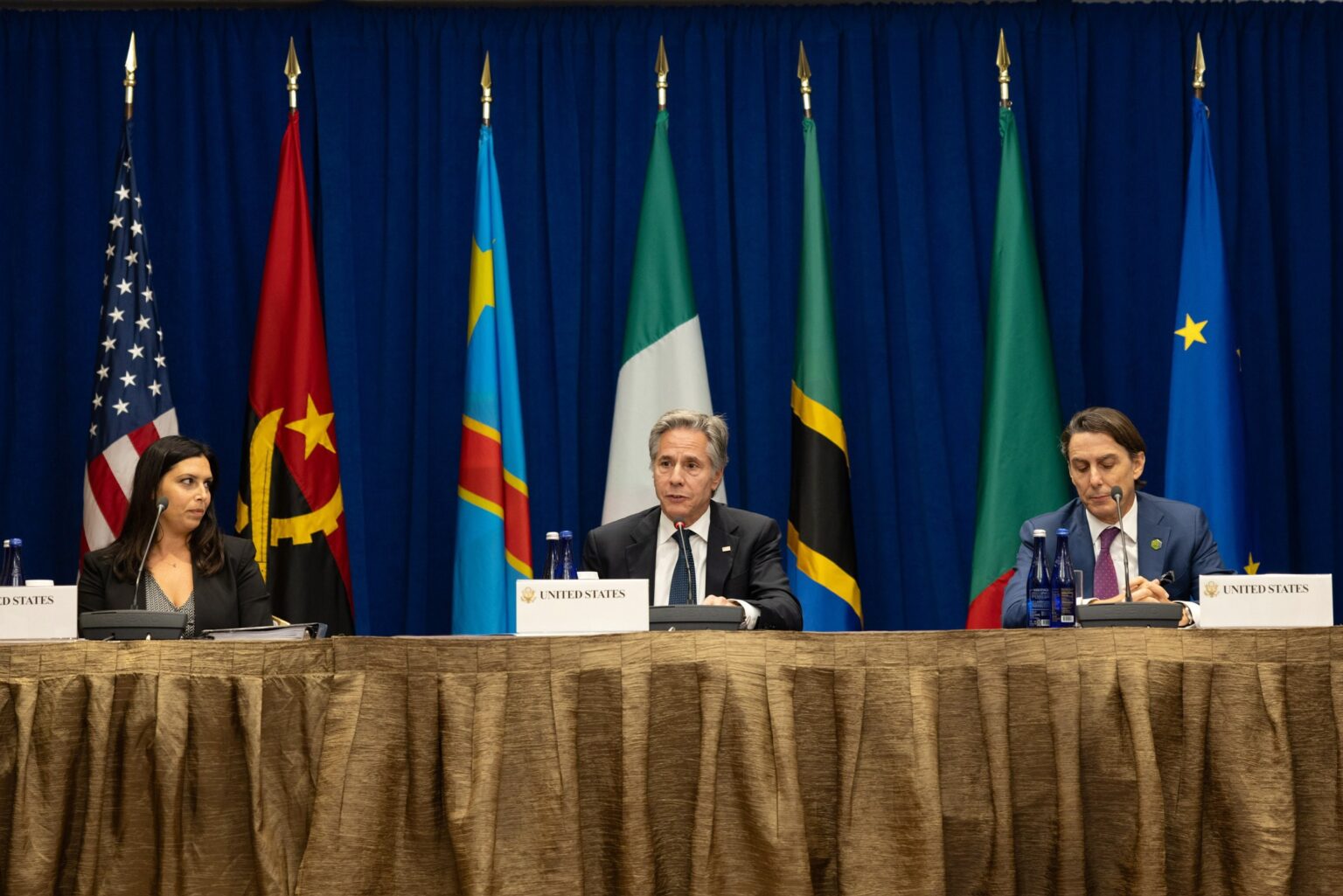By Pearl Matibe in Washington D.C
Recent diplomatic efforts seem to align with Africa’s interests for sustainable growth and development. During the 79th United Nations General Assembly (UNGA79), U.S. Assistant Secretary of State for African Affairs, Molly Phee, shared major updates on U.S. involvement in Africa.
She emphasized Washington’s commitment to deeper partnerships and growth across the continent, drawing attention to key successes and America’s future plans. At the conclusion of a High-Level Week, Phee gave insight into how U.S. strategy in Africa is evolving, especially through engagements with African countries and broader multilateral initiatives.
One of the big highlights from UNGA79 was the U.S. push for Africa to have a stronger voice globally, especially on the United Nations Security Council (UNSC). Phee discussed the ongoing support for granting Africa two permanent seats on the UNSC, which marks a shift in the U.S. position.
“We believe strongly in lifting the African voice into global conversations,” Phee said. “This shift is consistent with President Biden’s goal to help Africans engage globally, commensurate with the power and potential of Africa.”
In addition to the UNSC push, U.S. Treasury Secretary Janet Yellen’s efforts led to Africa gaining representation on the executive boards of major financial institutions like the World Bank and the International Monetary Fund. The idea behind this move is to make sure these organizations better understand and meet Africa’s needs, especially when it comes to boosting economic development and infrastructure.
As UNGA79 meetings wound to a close in New York, Phee talked to journalists. She touched on the U.S.’s engagement with Senegal.
In response to a question from State Department Correspondent, Pearl Matibe, about key U.S. successes in Africa, Phee highlighted a key meeting with Senegal’s new president.
“What an incredible outcome and achievement by the people of Senegal to save their democracy, and we’re proud to be a partner to Senegal and see its example for the continent,” she said.
The U.S. is working closely with Senegal, focusing on youth employment, economic growth, and tech innovation. Senegalese President Bassirou Diomaye Faye recently visited Silicon Valley to look into how artificial intelligence could help reduce corruption and improve government efficiency in his country.
Phee also discussed U.S. partnerships with other African countries. While she acknowledged the tough security challenges in the Sahel, she pointed out that there have been productive talks with countries like Mauritania and Guinea-Bissau.
“We were able to have many bilateral meetings with our partners, including those in West Africa,” she said. These conversations are crucial in pushing forward shared goals of peace, stability, and economic growth.
Matibe also asked about U.S. engagement in Southern Africa, specifically regarding the Democratic Republic of Congo (DRC). Phee emphasized that the U.S. is committed to promoting peace in the region, highlighting Angola’s role in mediating the conflict in eastern DRC.
“We are proud to support Angola’s efforts to reduce the conflict in eastern DRC,” Phee noted. This aligns with the U.S. goal of working with African countries to address conflicts and promote stability.
The ongoing crisis in Sudan also came up, with Phee acknowledging its complexity but reaffirming that the U.S. is working closely with allies and regional partners to help manage the conflict.
Perhaps one of the most exciting announcements from UNGA79 is President Biden’s historic upcoming visit to Angola, set for this week. This marks the first time a U.S. president will visit Angola, which Phee called the “capstone” of the administration’s efforts to build stronger ties with Africa.
This trip follows the 2022 Africa Leaders Summit and will shine a spotlight on the U.S.’s role in the Lobito Corridor project, a huge infrastructure initiative connecting Zambia, the DRC, and Angola through a railway and internet connectivity. The corridor is expected to spur agricultural development and boost economic growth in the region.
“This is a generationally significant investment,” Phee explained. “It’s not just a railroad; it will help bring communities forward and connect from the Atlantic coast, hopefully across to the Indian Ocean.” This project is a key part of the U.S.’s broader strategy of investing in African infrastructure to support sustainable growth.
Phee also pointed to U.S. partnerships in Southern Africa, especially ongoing talks with South Africa. She praised the strong ties between the two countries, particularly in business and governance.
“We have so many elements of engagement with South Africa, whether they’re business ties, shared democratic values, or our joint efforts to promote regional peace and stability,” she added.
Looking ahead, Assistant Secretary Phee’s remarks at UNGA79 emphasized the U.S.’s ongoing commitment to strengthening its partnerships with African nations across various areas, from economic growth to security and diplomacy. Whether through infrastructure investments like the Lobito Corridor, supporting African representation in global institutions, or continuing to engage with West and Southern African nations, the U.S. is positioning itself as a key partner in Africa’s future.
As Phee summed up: “We’re proud to support the vision of African leaders and to help them achieve their goals for peace, prosperity, and development. The pace of U.S. engagement with Africa has been unprecedented, and we look forward to continuing to build on these successes in the months and years ahead.”
Pearl Matibe is a Washington, DC-based White House Correspondent, and media commentator with expertise on U.S. foreign policy, and international security. You may follow her on Twitter: @PearlMatibe


![2025 National Budget Statement [Download]](https://openparly.com/wp-content/uploads/2024/11/Witholding-tax-on-Betting-2-420x280.png)
